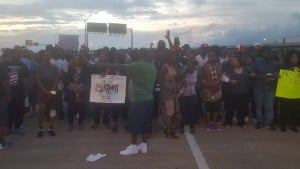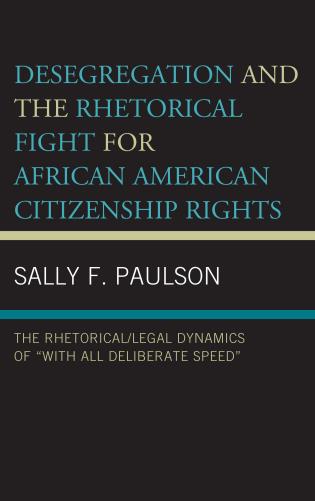[W]e are today witnessing the return of religion. As the French writer and statesman André Malraux predicted, the twenty-first century would be religious. This is why it is important—and perhaps why it is the duty of us academics and intellectuals—to find new ways of thinking about religion in a world where unthinking and depraved uses of religion can be dangerous. We should not forget, however, that for many linking rhetoric and religion remains new and daring.-Laurent Pernot, “The Rhetoric of Religion”
Since Pernot’s call more than a decade ago, scholarship on religion and rhetoric has experienced a renaissance in the field of rhetoric and composition studies. Researchers have extended the field’s interest to the dynamic relationship between rhetorical perspectives and religious beliefs, discourses, and practices. This rich body of scholarship has produced a burgeoning subfield that is now placing religious questions at the center of rhetoric and writing scholarship. As a result, the field has gained important insights into many of the complex ways rhetoric and religion intersect, e.g., in the context of rhetorical activism, rhetorical education, and composition practices. This promising body of research, however, is only a starting point for exploring the rich and various links among rhetoric and religion in our pluralistic, 21st-century context.
As Pernot noted in his 2005 address, the connections between rhetoric and religion “are numerous and complex” and lead to “many paths of research” (254). This gathering is an opportunity both to extend current work on religion and rhetoric and to imagine new possibilities for such work. What, for example, might forging research partnerships among scholars of Jewish rhetorics, mindfulness, and Jesuit rhetorics make possible? What insights might be gained through research that works at the intersections of religious, LGBTQ, feminist, or Native American rhetorics? What generative lines of inquiry might be pursued by scholars interested in Islamic rhetorics, ethics, or liberation theology?
Given the growing interest in this area of rhetorical study, the time is ripe for scholars to gather and share the research that will shape the future of rhetoric, writing, and religion. The Rhetoric and Religious Traditions Standing Group is therefore pleased to announce the second Conference on Rhetoric and Religion in Knoxville, Tennessee on October 4-7, 2018.
Scholars are invited to submit individual paper and panel proposals focusing on any project related to rhetoric and religion. Scholars might, for example, examine intersections between work on religious rhetorics and other subfields of rhetoric and composition (e.g., multilingual writing, multimodal composition, writing-related transfer, rhetorics of disability). Or presenters might discuss the ways scholarship on religion and rhetoric might be invigorated by studying spiritual traditions and practices of particular groups (e.g., Native Americans, African Americans). Other researchers might interrogate the ways terms such as “secular,” “sacred,” “religious,” “ethical,” “moral,” “faith,” and “tradition” have functioned in scholarship on religion and rhetoric. Other still might examine the ways work on rhetoric and religion might explore key cultural concerns in our current moment, including how issues like immigration, secularization, the rise of “nones” and “seekers” change the way religion is experienced and expressed. We invite a variety of topics, including those that focus on particular religious faiths, new methodologies of research, various religious and spiritual practices, approaches to religion and rhetorical education, and possibilities for religion and civic engagement. We are particularly interested in presentations that speak across communities and traditions.
To that end, we also invite scholars working at the intersections of literature and religion to submit proposals. Given the strong historical and theoretical connections between literary study and rhetorical study, we would particularly welcome contributions from colleagues studying the connections between literary traditions, critical theory, and religion.
We view this conference in a number of ways: a means of exploring the various relationships among religious rhetorics in our pluralistic context; an opportunity for scholars to engage with the diverse approaches available for studying, teaching, and inventing religious rhetorics in our present moment; and an occasion to consider ways that scholarly work on religion and rhetoric can speak to emerging trends in our current cultural context. In coming together to examine such concerns, this gathering will serve as a vital occasion through which scholars of rhetoric and religion can shape the field’s future courses of inquiry, teaching, and public engagement.
At the website, you will find a list of seminars we’re featuring as part of the conference, seminars ranging from Arab-Islamic Rhetorics and Buddhist Rhetorics to Religion and Public Rhetorics and Feminist Historiography and Religion. We’re pretty excited about the lineup of keynote speakers and seminar leaders, which currently includes the following:
– Martin J. Medhurst, Baylor University
– Andre E. Johnson, University of Memphis
– Patricia Bizzell, College of the Holy Cross
– John C. Brereton, Boston Athenaeum
– Beth Daniell, Kennesaw State University
– Rasha Diab, University of Texas
– John Duffy, University of Notre Dame
– Janice W. Fernheimer, University of Kentucky
– Cinthia L. Gannett, Fairfield University
– TJ Geiger II, Baylor University
– Lisa King, University of Tennessee
– Kurt Spellmeyer, Rutgers University
– Elizabeth Vander Lei, Calvin College
– Lisa Zimmerelli, Loyola University Maryland
To download a PDF of the full Call for Papers, please click here.
Donate to the Work of R3
Like the work we do at Rhetoric Race and Religion? Please consider helping us continue to do this work. All donations are tax-deductible through Gifts of Life Ministries/G’Life Outreach, a 501(c) (3) tax-exempt organization, and our fiscal sponsor. Any donation helps. Just click here to support our work.












